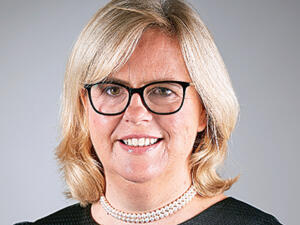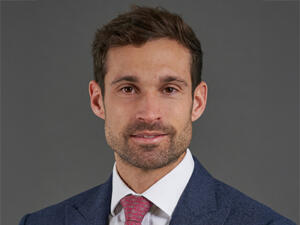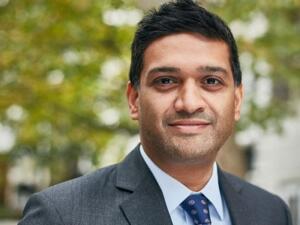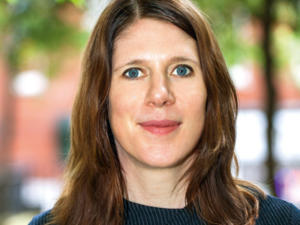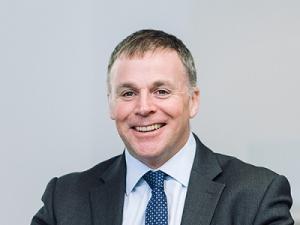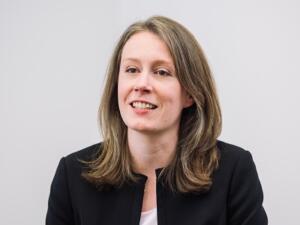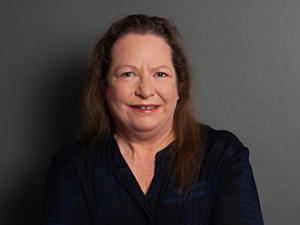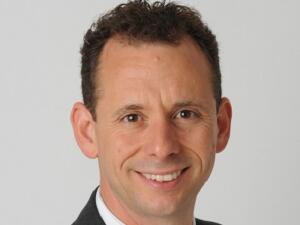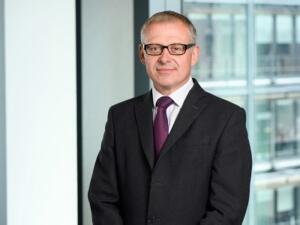Close race at the top of the UK patent litigation market
For a long time, two IP boutiques dominated the UK patent litigation market. But for the past two years, the patent teams of three full-service firms have mounted a challenge on Powell Gilbert and Bristows. The UPC and SEP portfolio licence cases have reshaped the UK market.
7 April 2025 by Mathieu Klos
Had Bristows and Powell Gilbert remained a single entity after 2007, they would now be miles ahead of competitors in the UK patent market. But, as is often the case, a handful of Bristows lawyers, led by Penny Gilbert, decided to establish their own firm, Powell Gilbert, in the early 2000s.
Yet going their separate ways did not harm either firm. Within a few years, both were at the top of the UK patent litigation market. Since 2019, JUVE Patent has consistently listed them with five stars in its top tier of UK litigation rankings – until now, they were the only firms to achieve this.
This year, however, the duo became a trio. In just seven years, the London patent litigation team of US firm Kirkland & Ellis has risen from newcomer to market leader.
Chicago tailwind
Kirkland & Ellis has a long history. Founded in Chicago in 1909, it initially specialised in press law due to its family ties to the Chicago Tribune. It is now one of the highest-grossing law firms globally, with strong revenue streams in M&A, private equity and litigation. It lately generated $8.8 billion worldwide. In the US, the firm is a patent law heavyweight. With this substantial backing, a small patent team led by established partner Nicola Dagg launched in London at the end of 2018. Today, the UK team comprises 18 lawyers and has recently been involved in all major UK SEP cases.
These include two major battles: Xiaomi vs Panasonic, and Lenovo vs Ericsson, which last year revolved around FRAND-rate determination and interim licences. The Kirkland team has been involved in the development of UK SEP law, often filing creative motions in court. Although the team usually represents Asian implementers such as Lenovo and Xiaomi, one of the best-known US implementers, Apple, is also a regular client.
- Nicola Dagg
- Steven Baldwin
- Oscar Robinson
The team has an idiosyncratic structure, with Nicola Dagg at the helm as frontwoman and rainmaker, present in almost every instruction. A handful of younger partners are then the driving forces for clients. Among them, Steven Baldwin, Daniel Lim, and Jin Ooi were part of the original starting team and remain important pillars of the practice. Others, such as Peter Pereira and Oscar Robinson, represent the third generation of partners and are gaining increasing market visibility.
SEP strength
Recently, the two most important SEP cases involving clients Xiaomi and Lenovo were settled. However, the team shows no signs of slowing down. It is already involved in proceedings that are gaining momentum, such as Samsung vs ZTE and MediaTek vs Huawei. But it is not only its considerable strength in SEP disputes that has propelled Kirkland & Ellis to the top.
The team secured a significant victory for Astellas and the University of California against Accord, Sandoz and Teva at the UK High Court regarding prostate cancer drug Xtandi. It is also representing Boehringer Ingelheim in a new dispute against Dr Reddy’s over patents relating to diabetes and cardovascular drug Jardiance.
Kirkland & Ellis is also well represented in the medical devices sector, having recently represented Meril Life Sciences against Edwards Lifesciences in UK proceedings over heart valves. The firm is heavily involved in coordinating the pan-European litigation here. The same applies to Advanced Bionics in relation to cochlear implants.
It appears that the team’s only real competition is itself. However, large law firms in the US are currently facing much stronger headwinds. President Donald Trump is attempting to exert significant influence on the US legal system. Unlike other US law firms, Kirkland & Ellis is not subject to a presidential executive order. However, the Trump administration is currently forcing many law firms, including Kirkland & Ellis, to scale back their diversity policies. Should this pressure increase, it would impede transatlantic business.
IP boutiques do not have to contend with such issues, even if the uncertain geopolitical situation also affects their clients and their business.
Two become three
The two long-standing market leaders, Bristows and Powell Gilbert, have once again performed well and retain their place in the top tier of the current JUVE Patent UK rankings. Both teams are active in many high-profile proceedings with a broad technical scope before the UK courts. They are among the strongest firms in the life sciences sector.
Powell Gilbert’s renowned name partner Penny Gilbert and her team is advising BioNTech in its high-profile disputes with Moderna and CureVac over mRNA patents. The firm recently acted for innovators such as Biogen against generics companies concerning a biosimilar of multiple sclerosis drug Tysabri. Furthermore, a team led by younger partners Siddharth Kusumakar and Bryce Matthewson is coordinating the Europe-wide litigation for Edwards Lifesciences against Meril over heart valves and is also involved in the related UPC litigation.
- Penny Gilbert
- Siddharth Kusumakar
- Bethan Hopewell
Meanwhile, Bristows remains the go-to firm for Novartis in many UK disputes. Dominic Adair, Andrew Bowler, Robert Burrows, Brian Cordery, and Rachel Mumby are among Bristows’ luminaries in this segment. They regularly represent not only originator clients such as the Swiss pharmaceutical giant but also generics companies such as Teva and Sandoz in UK litigation.
Young talent is key
While the two boutiques were more active than Kirkland & Ellis in life sciences, the US firm was clearly ahead in SEP proceedings. That said, the boutiques have not been idle in this segment either. Bristows partners such as Myles Jelf, Richard Pickney and James Boon handled major disputes for SEP holders Panasonic and Philips. The parties have since settled.
- Brian Cordery
- Rachel Mumby
- Richard Pickney
Powell Gilbert’s activity in the SEP litigation segment dipped in 2022 and 2023, but then in 2024 the firm represented Tesla in a dispute over an Avanci pool licence. It also represented ZTE against Samsung.
However, the greatest strength of Bristows and Powell Gilbert over their main competitors lies in their ability to consistently promote young talent. This not only ensures seamless generational change but also enables the firms to conduct proceedings across a broad technical spectrum.
At Powell Gilbert, for example, founder and name partner Tim Powell left the partnership in 2023. He now works for Morgan Lewis. Bryce Matthewson became a partner at Powell Gilbert in 2024 and JUVE Patent recently named him as one of four ones to watch in UK patent litigation 2025.
Back to business
The business of UK firms has stabilised significantly after the turmoil of Brexit. The UK High Court and the Court of Appeal have established themselves as the port of call for FRAND-rate determination. In the meantime, these proceedings have become significantly more complex, while the launch of the UPC has made the coordination of pan-European proceedings more elaborate. These developments have enabled more law firms to push for the top of the UK market.
In 2023, Bird & Bird joined the chasing pack, followed by Taylor Wessing in 2024. The London patent litigation teams at both firms have been among the best-known for years, with extensive activities across many technological fields.
- Morag Macdonald
- Richard Vary
- Toby Bond
Chomping at the bit
For a few years, both teams suffered from the fact that they were led by well-known senior partners and could not seem to leverage this to establish the next generation. This is now no longer the case, with the next generation of partners having long been on the rise at both firms.
Additionally, the firms have no shortage of high-profile clients. Bird & Bird is representing CureVac against BioNTech and Pfizer over mRNA patents. For Celltrion, a team is fighting against Genentech, Novartis and Janssen over monoclonal antibody omalizumab.
The firm was also present in Europe-wide litigation, including UK proceedings, for Dexcom against Abbott concerning a continuous glucose-monitoring device. The intensive battle was settled in late 2024. In addition to senior partners such as Morag Macdonald, Mark Hilton and Patrick Kelleher, younger partners such as Christopher de Mauny, Nicole Jadeja, and Jae Park are active in these cases.
Richard Vary, Toby Bond, and Jane Mutimear are familiar names when it comes to SEP litigation. Bird & Bird is currently representing Alcatel Lucent and Nokia against Amazon over multimedia streaming services and video codecs. Important cases that have since been settled include the work for InterDigital against Lenovo and Oppo over mobile communications, as well as for ZTE against Lenovo over wireless communications.
Impressive client roster
Taylor Wessing impressed with a roster of life sciences clients. Senior partners such as Simon Cohen, Matthew Royle, Nigel Stoate, as well as the next generation of partners around Amanda Ebbutt and Michael Washbrook, excelled in their work for regular client Pfizer in the fight with CureVac and Moderna over COVID-19 vaccine patents. Not to mention the representation of Abbott against Dexcom over glucose-monitoring devices, and of Viatris in several battles over pharma drugs such as Bayer’s anticoagulant rivaroxaban/Xarelto.
- Nigel Stoate
- Amanda Ebbutt
- Michael Washbrook
The London team coped well with James Marshall’s move to Pinsent Masons in the SEP sector because young partners like Mike Washbrook have stepped up their activities. Together with Xuyang Zhu, he represented Oppo in the SEP portfolio licence dispute with InterDigital.
Tom Foster and Xuyang Zhu were also active for Ericsson in the UK proceedings against Lenovo until the settlement a few days ago, which also involved an SEP portfolio licence.
The UPC dilemma
It is not only SEP battles that have recently determined market developments in the UK, but also law firms’ activities at the Unified Patent Court. The UK may not be part of the UPC system but the market leaders have nevertheless found their way into UPC proceedings with different strategies.
Bird & Bird and Taylor Wessing, for example, are among those law firms that made a very strong showing in the court’s initial months. They are present in many UPC proceedings with pan-European teams and are currently among the market leaders in UPC litigation (see the current JUVE Patent UPC litigation ranking). Here, the German, Dutch or French partners are usually registered as the main representatives, with the UK lawyers working in the background.
Powell Gilbert and Bristows went into the UPC with offensive strategies from the outset. Offices in Dublin, admission of lawyers in Ireland or on the continent, and active marketing showed the firms’ high ambitions early on.
For Powell Gilbert, this investment paid off in full almost immediately. The firm is acting for Edwards Lifesciences, AsusTech and AIM Sport Vision in many UPC proceedings. The JUVE Patent editorial team recently named it UPC firm of the year 2025.
Bristows was not quite so quick off the mark, but it now represents its core client Novartis in one of the first major pharmaceutical disputes at the UPC.
Unusual but successful
Unlike the other UK market leaders, Kirkland & Ellis pursues an unconventional strategy. The US firm deliberately eschews maintaining teams in key UPC locations such as Munich or Paris. Instead, it relies solely on its excellently positioned London team, which has evolved into a central hub for global patent disputes between the US, Asia, and continental Europe. Kirkland maintains its strategy of not acting at the UPC, but rather as coordinating counsel in major global litigation.
Nevertheless, it is other law firms hitting the headlines at the UPC. Participation in UPC proceedings does not play a role in JUVE Patent’s UK ranking, but in the long term, participation in UPC proceedings will certainly have a positive effect on the reputation of law firms. In this respect, Powell Gilbert may currently be slightly ahead of its four other UK competitors.
